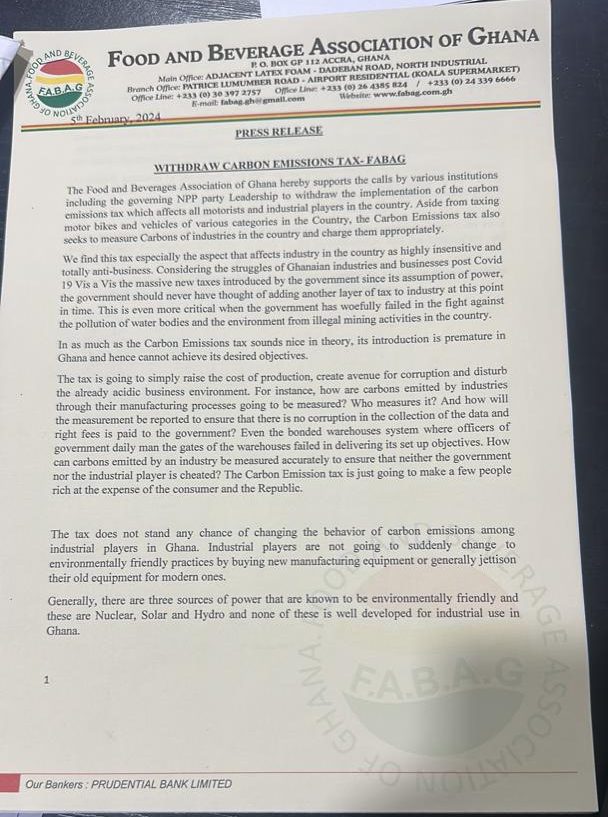
The Food and Beverages Association of Ghana (FABAG) has raised serious concerns over what it describes as a worsening crisis of smuggling across the country’s borders, warning that the illegal trade is bleeding the state of billions of cedis in revenue every month.
In a strongly worded statement, FABAG said while legitimate businesses are struggling with high operational costs and heavy taxation, smugglers continue to flood the Ghanaian market with untaxed and often substandard goods.
The association revealed that recent intelligence from border communities and industry stakeholders shows widespread smuggling of essential commodities such as rice, cooking oil, sugar, alcoholic beverages, and textiles. FABAG warned that this illicit trade not only undermines local industries, but also deprives the government of critical tax revenue needed for national development.
“Compliant businesses are subjected to rigorous tax regimes and levies while smugglers thrive unchecked. This is a double tragedy—honest traders are being unfairly penalized while criminal networks prosper,” the statement said.
According to FABAG, Ghana is losing hundreds of millions of cedis every week through unmonitored smuggling activities at both official and unofficial entry points.
The group cautioned that the situation threatens the stability of the economy, weakens the cedi, discourages investment, and endangers thousands of jobs in the manufacturing and distribution sectors.
FABAG called on the Customs Division of the Ghana Revenue Authority, the Ministry of Trade and Industry, and the National Security agencies to intensify enforcement at the borders, deploy modern surveillance systems, and strengthen collaboration with local communities to curb the menace.
The group also urged the Ministry of Finance to review the current import tax regime as it prepares the 2026 budget statement, arguing that high import duties and cumbersome port procedures have been major drivers of smuggling.
“The government cannot continue losing significant revenue while burdening Ghanaians and businesses with new electricity and water tariffs,” FABAG cautioned, describing the crisis as both an economic and national security threat.
FABAG emphasised that urgent reforms are needed to protect Ghana’s borders, sustain local industries, and safeguard the future of legitimate businesses before the situation spirals further out of control.
For more news, join The Chronicle Newspaper channel on WhatsApp: https://whatsapp.com/channel/0029VbBSs55E50UqNPvSOm2z
The post Smuggling is killing local businesses -FABAG Warns appeared first on The Ghanaian Chronicle.
Read Full Story
























Facebook
Twitter
Pinterest
Instagram
Google+
YouTube
LinkedIn
RSS